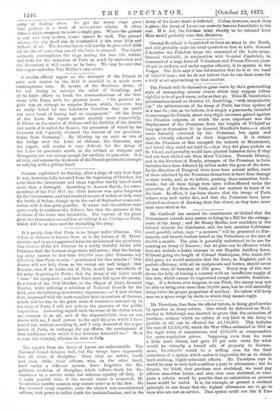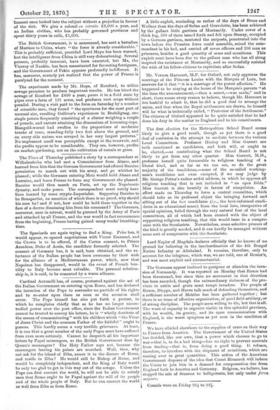Mr. Trevelyan, free from his official fetters, is doing good
service by speeches on Army reform. One which he delivered on Wed- nesday in Edinburgh was directed to prove that the extinction of purchase, without which no reform of any kind in the Army is possible at all, can be effected for X3,140,000. This includes the sum of £2,355,000, which the War Office estimated in 1857 as the legal value of commissions, and £785,000 as compensation for extra-regulation prices. Supposing even that we were a little more liberal, and gave 10 per cent. extra for what would be virtually a forced sale of property to Govern- ment, £4,000,000 would be a trifling sum for the final extinction of a system which makes it impossible for us to obtain hard-working, highly-educated officers. Mr. Trevelyan says it would be easy to save half-a-million a year in allowances ; but he forgets, we think, that purchase once abolished, we must pay officers somewhat better, and also, that once abolished, so com- plete a reform would be possible that no calculation on present bases would be useful. It is, for example, at present a cardinal principle in our Army that the highest allowances are to go to men who are not on service. That system could not last if Par. liament once looked into the subject without a prejudice in favour of the rich. We give a colonel en retraite 22,000 a year, and an Indian civilian, who has probably governed provinces and spent thirty years in exile, 11,000.































 Previous page
Previous page